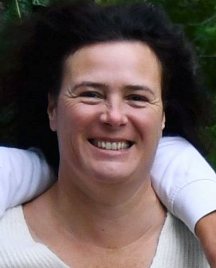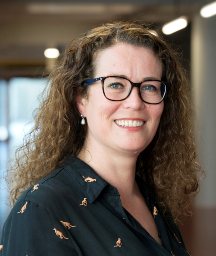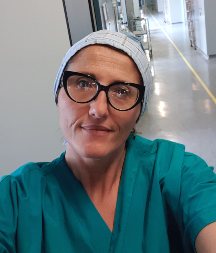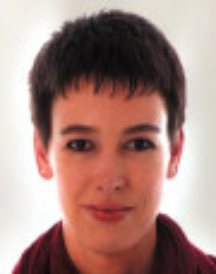The Working Party Nurse is a role that is now firmly established as a valuable resource in each of the medical Working Parties. The goal to develop collaborative nursing/medical projects for patient benefit continues to develop at pace. The roles have begun to adapt to the needs of the WP with many nurses taking more responsibility for education.
Meet with four Working Party Nurses:
 Sophie Van Lancker, TCWP Nurse from Belgium
Sophie Van Lancker, TCWP Nurse from Belgium
I'm Sophie. I'm a pediatric nurse. I started in 1996 on the pediatric ward of the university hospital in Ghent as a junior nurse. We perform around 20 SCT a year. Simultaneous with working, I started a master degree on health promotions.
In 2001 I was asked to start writing SOPs and I started to focus me as consultant for patients with a SCT and their parents. In 2010 we started with a special multidisciplinary out clinic project to follow all our post SCT patients. I hope that with the experience I built up that I can contribute to the Transplant Complication WP for nurses.
 Hilda Mekelenkamp, PDWP Nurse from The Netherlands
Hilda Mekelenkamp, PDWP Nurse from The Netherlands
As a pediatric hematology nurse combining clinical work and research, I recently joined the PDWP as working party nurse. I believe I perfectly can use my experiences and ambition to work on improvement of care in collaboration with the PDWP. Within this collaboration we organize meetings and work on projects in order to improve pediatric SCT care and to support pediatric SCT physicians and nurses within EBMT.
 Claudia Boglione, ADWP Nurse from Italy
Claudia Boglione, ADWP Nurse from Italy
I work at the bone marrow transplant of the careggi university hospital of florence directed by Dr. Saccardi.
I am very honored and happy to join this group and to make available my experience in transplants in the autoimmune diseases field.
In this moment that puts us to the test as health workers and as human beings, we must find the confidence that everything will be fine and we will soon find ourselves working together.
 Iris Agreiter, IDWP Nurse from Dublin
Iris Agreiter, IDWP Nurse from Dublin
my name is Iris Agreiter, I am currently working as a staff nurse at the National Bone Marrow Transplant (BMT) Centre in Dublin, St. James’s Hospital, where I moved 1.5 years ago. Previously I worked for 6 years at the Haematology and BMT Division of Bolzano in Northern Italy as a staff nurse and before that, for 4,5 years in Infectious Diseases Division of the same hospital.
During the last 3 years I really enjoyed being part of the Infectious Diseases Working Party (IDWP) as link nurse. I felt very welcome from the first moment and had the possibility to have my own project on “protective environment”. Specifically, I worked on the “Nursing Survey on Protective Isolation Practices in EBMT Centres”, in which I was the principal investigator; it was not easy to set up a questionnaire, but I got a lot of support from IDWP members as they are experts in the field and by Nurses Group Research Committee (NG RC).
Doing research is a step by step process, and both, IDWP and NG RC supported me in how to write a study protocol, have contacts with the study coordinator of EBMT Office in Leiden, how to ask for statistical analysis and finally precious inputs on the manuscript for the publication of a paper. A big thanks for their expertise and patience goes to IDWP chair Prof. Jan Styczynski, IDWP secretary Prof. Malgorzata Mikulska, and the IDWP team Dr. Dina Averbuch, Dr. Lidia Gil, to the whole NG RC, specifically to my mentor Jacqui Stringer and NG RC chair Sarah Jayne Liptrott and the NG study coordinator Anne Lippinkhof Kozijn. I have learned a lot from all of them.
I got really passionate about the subject, therefore, in order to have a better understanding of infections and infection prevention, I started a Postgraduate Diploma in Infection Prevention Control at the Royal College of Surgeons in Ireland.
After 3 years as a link nurse, I had the possibility to get into my role and have a clear picture of how it works, so that I decided to reapply for a further 3 years. I feel to be an active part of the IDWP and I am looking forward to giving my contribution as a nurse, as we have an important role in the care of patients.
My advice to future link nurses is not to be shy; you don’t have to be a clinical nurse manager, a clinical nurse specialist or an advanced nurse practitioner. Being passionate about the subject, working every day close on the patient and having good ideas for research is sometimes more worth, therefore give it a chance, take the challenge.